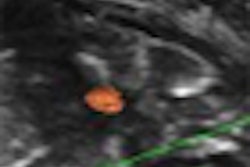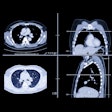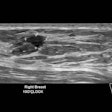
NEW YORK (Reuters Health), Sep 10 - In medium- to high-risk cardiac patients who need major vascular surgery, coronary angiography should be done routinely because it improves long-term outcomes, Italian researchers report in the September 8 issue of the Journal of the American College of Cardiology.
Dr. Giuseppe Ambrosio of the University of Perugia Medical School and colleagues observe that although coronary angiography and possible coronary revascularization before elective major vascular surgery are said to reduce perioperative mortality, "this issue is still hotly debated."
In fact, Ambrosio told Reuters Health, "One would think that these patients should be given a thorough search for underlying coronary artery disease before undergoing vascular surgery, including coronary angiography, (but) current guidelines only advocate noninvasive testing for inducible myocardial ischemia."
To gain more information on the matter, the team studied 208 patients with a revised cardiac risk index of 2 or more who were scheduled for major elective vascular procedures. Patients were randomized to a "selective strategy" group or a "systematic strategy" group.
The selective patients underwent coronary angiography based on the results of noninvasive tests. For the systematic group, coronary angiography was routinely included in the preoperative work-up. As a result, the rate of myocardial revascularization was lower in the selective group (40.1% versus 58.1%).
At a mean follow-up of 58 months, there was "a significantly better outcome ... with respect to Canadian Cardiovascular Society anginal class," the authors report, with 17.2% of the systematic group in class 2 or greater, versus 30.8% of the selective group. There was no difference between groups in the proportion of patients in New York Heart Association functional class III or IV, however.
Eight-year actuarial freedom from any cardiovascular event was 53.5% in selected patients and 77.5% in the systematic group, corresponding to a relative risk reduction of 53.6%.
Thus, concluded Ambrosio, "we've shown that a strategy of systematic angiography is associated with better outcome in these patients."
In an accompanying editorial, Dr. Giora Landesberg of Hadassah Medical Center in Jerusalem and Dr. Morris Mosseri of Meir Medical Center in Kfar Saba, Israel, observe, "This relatively small trial must be corroborated by additional, preferably larger studies."
"Above all," they conclude, "risk stratification of patients who are candidates for vascular surgery is frequently puzzling, and the treating physicians must rely on their best medical judgment whether to pursue preoperative noninvasive or invasive testing as well as coronary revascularization procedures with these high-risk patients."
By Megan Brooks
J Am Coll Cardiol 2009;54:989-998.
Last Updated: 2009-09-09 17:52:01 -0400 (Reuters Health)
Related Reading
CT coronary angiography identifies disease before valve surgery, November 16, 2006
Copyright © 2009 Reuters Limited. All rights reserved. Republication or redistribution of Reuters content, including by framing or similar means, is expressly prohibited without the prior written consent of Reuters. Reuters shall not be liable for any errors or delays in the content, or for any actions taken in reliance thereon. Reuters and the Reuters sphere logo are registered trademarks and trademarks of the Reuters group of companies around the world.


















